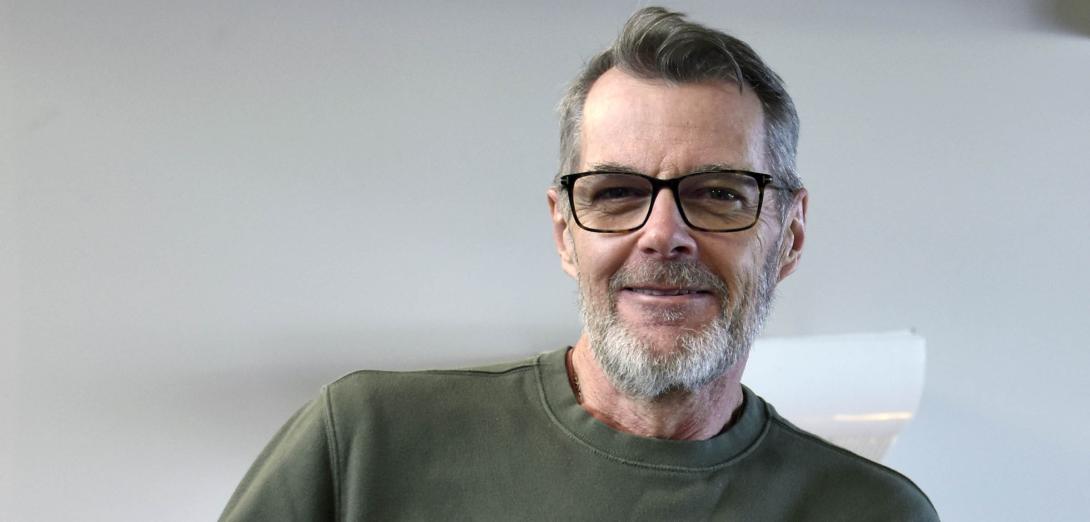In recognition of Substitute Teachers’ Appreciation Week, the ATA News put out a call for submissions from substitutes on the following questions:
- Why are you a substitute teacher?
- Is it a stepping stone or a preferred career option?
- What do you find most rewarding about it?
- What is the most challenging aspect?
Here are the words of five Alberta substitute teachers.
Be prepared and flexible
I have been a proud substitute teacher for the past 14 years. At the beginning of my career, I tried to get a teaching contract, but no luck. I decided to embrace the sub life and have not looked back. I was drawn to the teaching profession from a young age. My parents are happy that I didn’t follow my first dream of working at McDonalds. My thought was, I get free Happy Meals every day.
I enjoy going to a different school each day and seeing what the day will bring, but I do love my regular classrooms, where I get to know the students and not call everyone kiddo because I can’t remember their names.
Do I wish for paid sick days and a health spending account? Very much, but I don’t have to plan, mark, do report cards or deal with parents. Do I feel like I am taken advantage of or not heard? Sometimes. Does every day teach me something new? Oh yes! My heart bursts every time I walk into a room and the students yell, “Yeah, Mrs. Henke-Lambert is here.”
What have I learned from being a substitute teacher? The two most important things are to be prepared for anything and to be flexible. One never knows what one is walking into when one steps inside a school in the morning. Which is why I have my sub bag, which contains many essential items and seems to get heavier every year, because I am always thinking of new things to put inside it.

Fun, varied and challenging
I walk into the office of a school I’ve never been to before and sign in, grab keys and scurry to the classroom they’ve told me I’ll be in for the day.
I scan through the notes that have been left for me:
- Any allergies/behaviours to note?
- When is the next break in the schedule so I know where to focus my attention for the time being?
- What is the attendance sign-in password?
- Are there any EAs in the room to lend some insight?
- Where is the bell schedule, and how tightly do I need to be following it?
Thinking on my feet in a Grade 9 science class in rural Alberta, or an academic-focused kindergarten in the heart of a city, or a suburban 5th grade class, or a high school mechanics class — this has been the sharpening of my craft over the past year and a half — the daily problem solving in someone else’s class, the entrusting of littlest div 1 children all the way to grown up div 4 students.
The biggest joy is the variety and the fun of getting to see so many schools, students, teachers, classrooms and administrators, and learning from each person and place.
The greatest challenge is that, in those minutes and hours, I must make them count. I must try to be competent at a subject that I find tough, try to be kind in the chaos of a junior high classroom, and try to not be awkward in the staff room at lunch.

A preferred career option
I was a teacher for five years when my kids were younger. As they aged, they had some academic needs that benefitted from me being at home and not prepping for school the next day. That’s when I started substitute teaching. It has become my preferred career option so that I can travel back and forth to my family in Saskatchewan and California without “missing” work.
I find the flexibility of subbing rewarding. I also love being able to say no to experiences that I did not enjoy the first time. This flexibility has given me better mental health, as I like to be available for my family when they have needs or want to travel together. I work for three rural school divisions around Calgary, and I love the diversity of students I get to be with.
The most challenging aspect of subbing is not having a connection with the students I teach like I would if I were in a classroom consistently. Classroom management is tricky when you do not know the kids’ quirks or learning style needs. However, when you say yes to the same schools and teachers, you get to know their students more and more each time, and it makes for a more personal interaction.

A necessity, not a choice
I am a substitute teacher not by my choice, but by necessity.
Teaching is my calling. I yearn to build relationships with students, colleagues, parents and the community. I dream of helping young people as they learn and grow. Substitute teaching feels like a combination of all the things that I struggle with, like something Dr. Frankenstein cobbled together out of all my weaknesses. An unfortunate and undeniable stepping stone in my career, substitute teaching is a shadowy purgatory in which I trudge while hoping for a brighter future.
In my experience, substitute teachers are marginalized within school communities and the teaching profession. Despite holding the same qualifications as contracted teachers, substitute teachers experience
- a significant lack of respect,
- a lack of community and social supports in the workplace,
- a lack of feedback and support regarding their professional practice,
- a lack of access to applicable professional development, and
- a lack of steady, predictable income.
The precariousness of work and the economic pressures experienced by substitute teachers are deeply entwined. There are substitute teachers in Alberta who live at or near the poverty line. This is unacceptable.
Substitute teaching in this province needs to be reformed. It should be deliberately and intentionally chosen, a sustainable career with a future and a pension.
Substitute teachers are professional teachers and deserve to be treated as such.

Tough gig requires a different skill set
I’m a career substitute teacher since 1984. I have loved the diversity of different classrooms.
When I began teaching, we lived 65 miles from the closest school, and the school district I taught in paid mileage to subs. We have since moved, and my current school division has not paid mileage. My biggest complaint in today’s teaching climate is that subs are treated as sub-par teachers. We do not get the perks awarded to classroom teachers — no benefits, no pension, no wellness package, nothing besides our daily wage.
Many times I have to adjust or make completely new lesson plans on the fly. As a sub, I have had to have a completely different set of skills than the regular classroom teacher because I may not be back in that classroom the next day, but I may be back in the future.
Please respect substitute teachers. Without their support, our education program cannot run.



